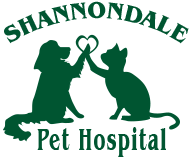Educational Articles
-
A zoonosis is a disease or infection that can be transmitted from animals to humans. Although cats only pose a mild risk of causing disease in humans, those with immunosuppressive conditions such as HIV or those receiving chemotherapy are at higher risk of becoming ill from these infections. The most common and significant infections that humans can get from their cats include rabies, cat scratch disease, toxoplasmosis, and ringworm. Feline leukemia virus (FeLV) and feline immunodeficiency virus (FIV) are not zoonotic. Hygiene plays an important role in preventing the spread of these diseases, as well as preventive medicine for your cat, including regular deworming and external parasite preventives. Keep your cat indoors to minimize exposure to zoonotic diseases.
-
A zoonosis is a disease or infection that can be transmitted from animals to humans. Although dogs only pose a mild risk of causing disease in humans, those with immunosuppressive conditions such as HIV or those receiving chemotherapy will be at higher risk of becoming ill from these infections. The most common and significant infections that humans can get from their pet dogs include rabies, leptospirosis, ringworm, and gastrointestinal illness such as Salmonella and Campylobacter. Hygiene plays an important role in preventing the spread of these diseases, as well as preventive medicine for your dog, including regular deworming and external parasite preventives.


